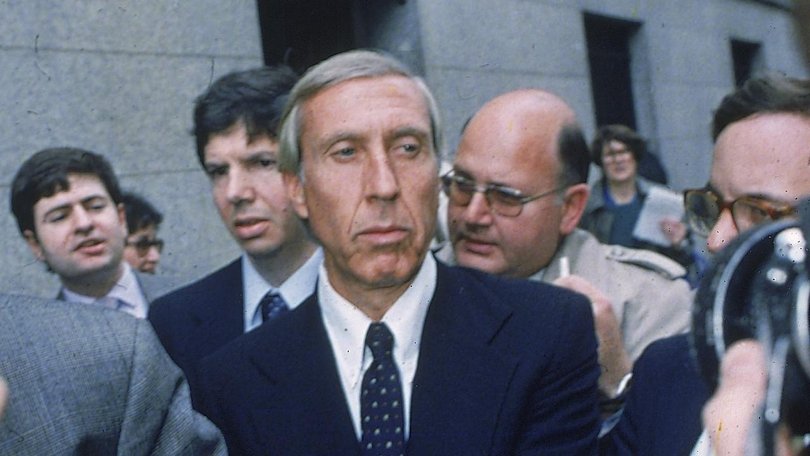Ivan Boesky, the Wall Street rogue responsible for the movie line ‘Greed is good’, dies in California

Ivan Boesky, the financier who gave birth to the “greed is good” mantra before going to prison in one of the biggest Wall Street insider trading scandals of the 1980s, has died at the age of 87, the New York Times reported.
Boesky, who partly inspired the Gordon Gekko character in the 1987 movie Wall Street, was considered a genius at risk arbitrage - the business of speculating in takeover stocks, and his wealth was estimated at $A360 million.
“I think greed is healthy. You can be greedy and still feel good about yourself,” he said in a commencement speech to the University of California Berkeley business school in 1986.
Sign up to The Nightly's newsletters.
Get the first look at the digital newspaper, curated daily stories and breaking headlines delivered to your inbox.
By continuing you agree to our Terms and Privacy Policy.Just a few months later, the man known on Wall Street as “Ivan the Terrible” was indicted on the charges that would send him to disgrace, near bankruptcy and prison.
Boesky became a legend by committing vast sums to potential merger deals, trying to take advantage of the small but predictable gains that follow takeover rumours.
Often, the news that Boesky was investing in a company was enough to prompt other speculators to enter the market, creating a self-fulfilling rise in the stock’s price.
All along, Boesky insisted he bought stocks only after formal takeover bids were announced. But the Securities and Exchange Commission proved he obtained tips from investment bankers about deals in the works and used them illegally before they were released to the public.
He won leniency by cooperating in the US government’s investigation of insider trading rings and reportedly taped conversations with his business contacts.
Boesky testified against Michael Milken, the junk bond king whose stunning rise and fall also epitomised the era. Boesky received a relatively light sentence of three-and-a-half years in prison, a $A150 million fine and a lifetime ban from trading securities.
Ivan Frederick Boesky was born on March 6, 1937, and grew up in Detroit, where his parents owned restaurants. He said later that at age 13 he bought a truck and drove it without a licence to the city’s parks, where he sold ice cream.
With a degree from the Detroit College of Law, he worked as a law clerk to a US District Court judge before joining the accounting firm Touche Ross.
Boesky moved to Wall Street in 1966, joining L.F. Rothschild as a securities analyst. In 1975, with $A1.05 million bankrolled by his wife’s family, he established his own firm specialising in risk arbitrage.
By 1981, the Ivan F. Boesky Corp had assets of more than $A750 million. Boesky reputedly made more than $A225 million in profits from runs on CBS Inc., Gulf Oil Co. and Conoco.
Described as a “money-orientated monomaniac,” Boesky himself said his work was “a sickness I have in the face of which I am helpless.”
“The machine doesn’t like to stop,” he said of his 20-hour work days. “I don’t know how not to work. I don’t know how to rest.”
In 1985, he established himself as the dean of the arbitrage business by writing a book entitled Merger Mania. But a year later, when he pleaded guilty to insider trading, his reputation crumbled.
After he left prison in 1990, Boesky kept a very low profile. He was reported to have enrolled in rabbinical studies and became involved in projects helping the homeless.
He lived at a luxury home overlooking the Pacific Ocean in La Jolla, California which he received in a divorce settlement from his ex-wife Seema, the daughter of a real estate magnate.
